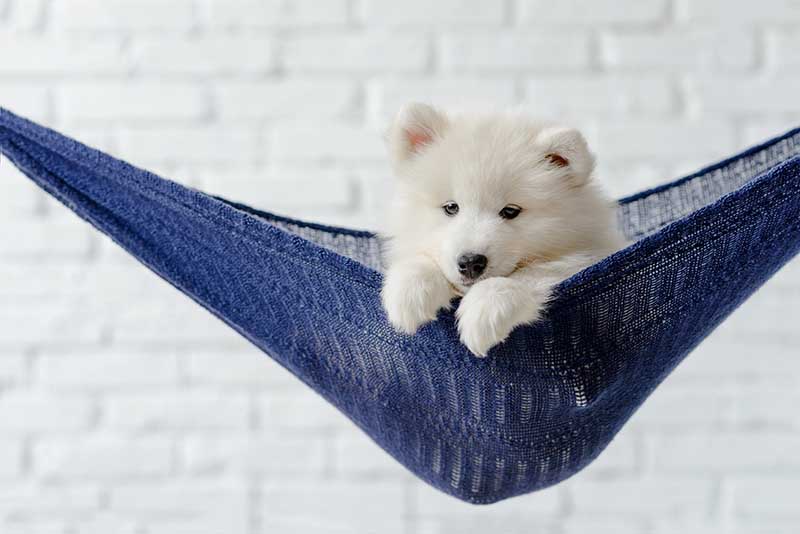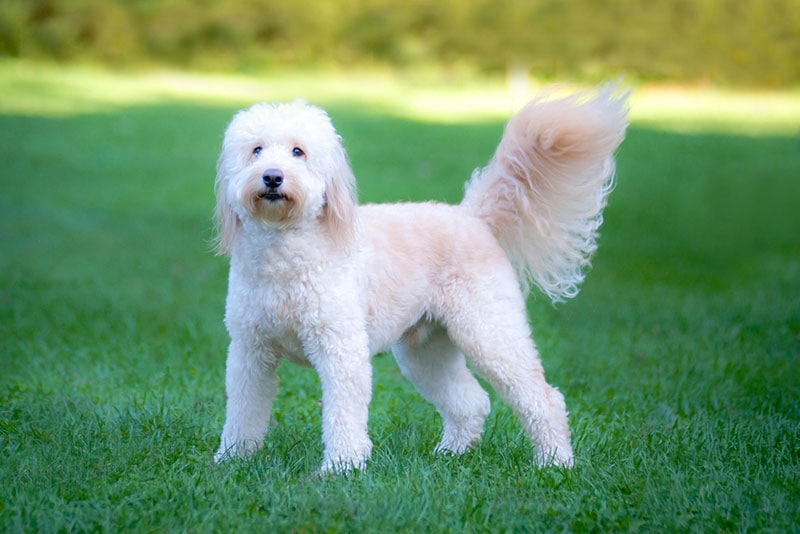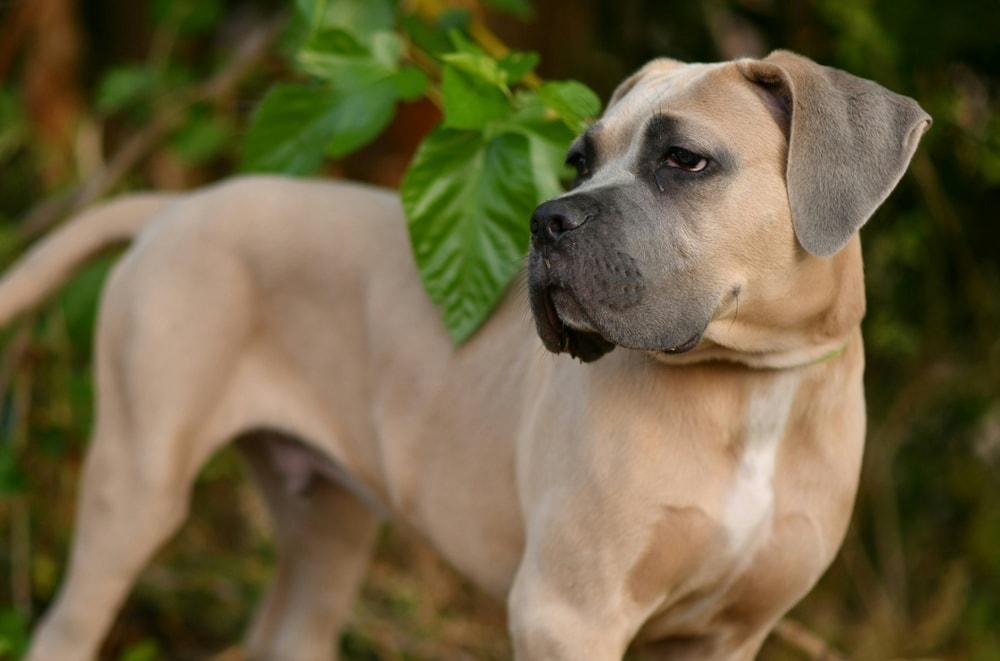Do Great Pyrenees Drool a Lot? Breed Facts & Tips

Updated on
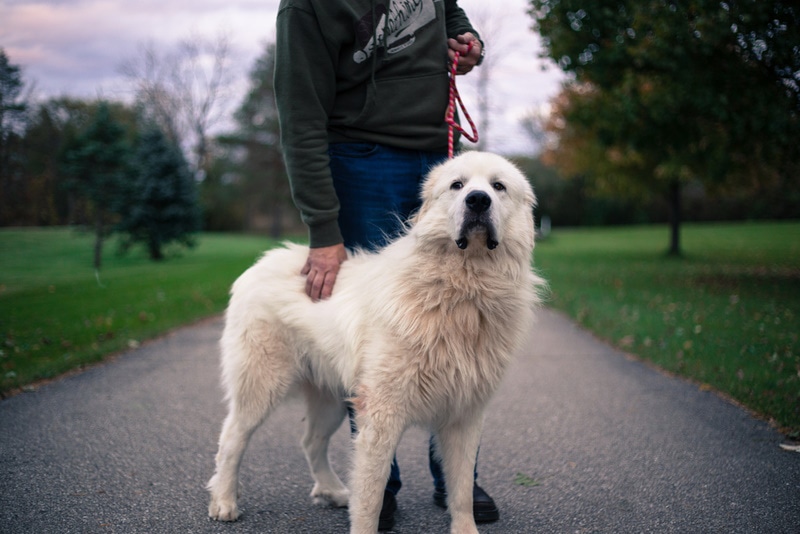
Click to Skip Ahead
For some dog lovers, the amount of drool can be one of the deciding factors when it comes to finding a new dog. If you prefer slobber-free kisses and have your heart set on a Great Pyrenees, you may wonder if they drool a lot. Opinions regarding whether or how much the Great Pyrenees drools vary among breeders and owners.
All dogs drool to some extent, but some situations will send their salivary glands into overdrive. Therefore, several factors will determine how much your Great Pyrenees will drool, but excessive drooling may indicate a health issue.
Do Great Pyrenees Drool A lot?
Breeders and Great Pyrenees owners sometimes claim that their dogs drool a lot and produce a lot of drool, but that may not be true for all Great Pyrenees. Your Great Pyrenees will drool, but the amount will differ at certain times. For instance, drooling will be more pronounced after drinking, when you are about to feed your dog, and during teething when your Great Pyrenees is still a pup.
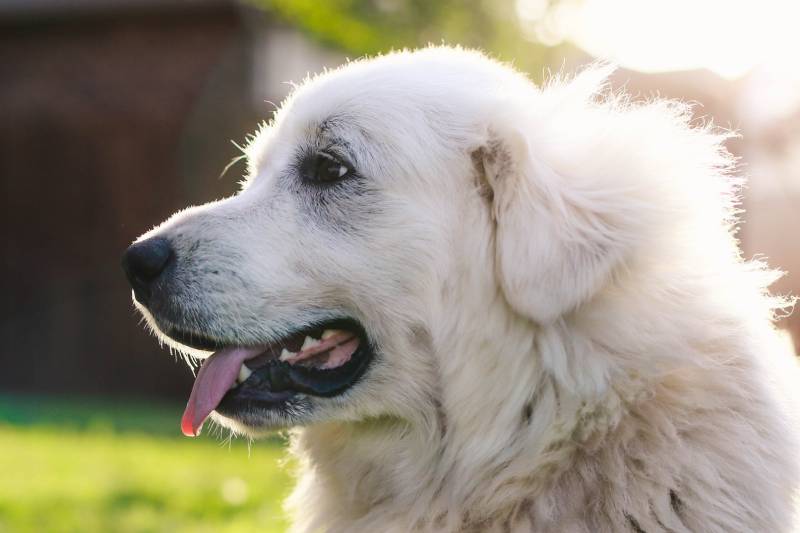
Why Do Dogs Drool?
Drool, known as ptyalism in the medical field, is normal for all dogs. The salivary glands in a dog’s neck and jaw area secrete saliva after eating to aid digestion. Saliva escapes the mouth, which we describe as drooling. Your dog will often drool more at certain times, especially when you’re opening a can of tasty dog food. Some of the reasons dogs drool more include the following:
1. Teething
Great Pyrenees puppies who are teething can create a lot of saliva, which causes them to drool a lot. This begins typically between 3 and 5 months, but depending on the particular pup, it could begin earlier or later.
2. Mouth Size
Breeds with larger upper lips usually drool more than others. Their head/lip shapes are incapable of holding the drool they produce, which causes saliva to gather in the folds of their lips and muzzles because of the additional skin that covers them.
3. Eating or Drinking
Dogs often drool more when they are eating or drinking water. Even dogs who don’t drool frequently can dribble saliva when they are eager for something tasty because saliva plays a crucial function in digestion.
Drooling is a typical, natural reaction of the digestive process in dogs. Your dog’s lips may start to moisten at the sight of exciting food, like a piece of chicken or their favorite treat.
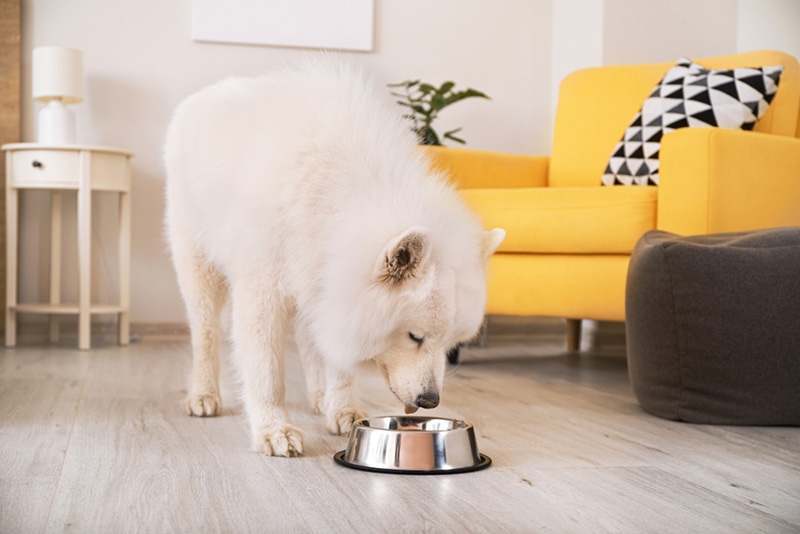
4. Excitement
Your Great Pyrenees can begin drooling out of excitement while chasing a ball or playing with their favorite toy. If you grab your dog’s harness in preparation for a beach or park walk, you might see extra drool due to excitement.
However, there is cause for concern if your dog suddenly starts drooling more than normal or if they never drool but suddenly turn into a drooler.
Should I Worry if My Great Pyrenees Drools A Lot?
As we mentioned, there are a few normal and healthy reasons for dogs to drool, and every dog will drool, even if just a little. However, excessive drooling or hypersalivation may indicate a more serious concern, especially when presented with other signs.
Excessive drooling in your Great Pyrenees will be determined by how much they usually drool. Many factors can make dogs drool a lot all of a sudden. Here are a few typical explanations:
Mouth injury
Your Great Pyrenees may drool more often if they have a mouth injury. This can be caused by chewing on a sharp object or having a splinter in the mouth from a bone or other foreign object.
Oral Issues
Drooling can be brought on by oral health issues such as tumors or infection, as well as periodontal diseases like gingivitis and stomatitis. Other signs, including a lump, blood, pus, or foul breath, can be present.
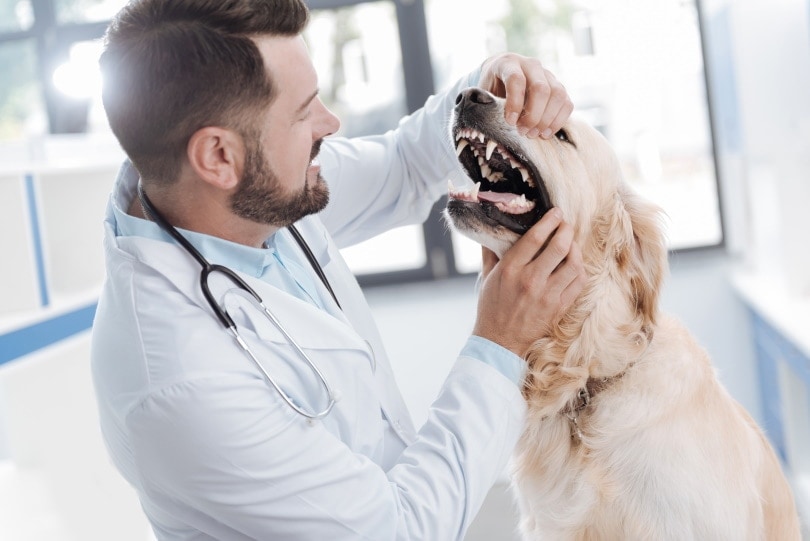
Toxins or Chemical Burns
The effects of ingesting a poisonous plant, food, or substance can range from mild effects like drooling and mouth-pawing. Excessive drooling can also result from exposure to animal venom or secretions, such as licking a toad or getting bitten by a venomous snake.
It’s vital for every dog owner to know which plants, foods, chemicals, and animals may be poisonous or venomous to keep your dog safe. Many corrosive substances, including battery acid, and any electrical burn from chewing on electrical cables can cause bleeding and drooling.
Anxiety and Fear
Visits to the vet, moving to a new home, riding in a car, or loud sounds can all induce anxiety in your Great Pyrenees, which might manifest as excessive drooling. Along with drooling, your dog may also be agitated, pant, hide, or experience diarrhea.
Heat Stroke
Drooling can signify that your pet is experiencing heat stroke and is trying to cool off. They may also pant more than usual. Never leave your pet in the car on a hot day since the interior temperature exceeds the outside air temperature.
Gastrointestinal Disorders
Excessive drooling can be brought on by gastrointestinal disorders such as esophagitis, gastritis, enteritis, pancreatitis, blockage from foreign material, gastric ulcers, inflammatory bowel disease, and gastrointestinal tumors. This usually results from the nausea that these illnesses cause.

Neurological Conditions
Drooling excessively could be a sign of damage to the brain, the salivary gland, or the nerve that links to it. Lethargy, weakness, and uneven pupils are some other possible signs. Some neurological issues can also make swallowing saliva difficult for your dog.
Bacterial or Viral Infections
Bacterial and viral infections such as tetanus or rabies can also cause excessive drooling. If your Great Pyrenees is drooling more than usual and is showing other signs that aren’t normal, you should get to your vet as soon as possible for a correct diagnosis.
How to Reduce Great Pyrenees Drooling
Before committing to a Great Pyrenees puppy, discuss with your breeder if you are worried about how much your dog may drool. There are also a few things you can do to help reduce the amount your Great Pyrenees drools. However, drooling caused by medical issues should be treated by your veterinarian. Other tips to reduce normal drooling include the following:
- For monitoring your Great Pyrenees’ general health and resolving any potential drooling-related disorders, routine veterinary visits are crucial.
- Regularly brushing your Great Pyrenees’ teeth to prevent bacteria and plaque build-up, which can lead to oral issues and excessive drooling.
- Provide your dog with fresh, clean water daily and ensure they stay hydrated, especially after being active and in hot weather conditions.
- Give them regular mental stimulation to help them stay calm and cope with their anxiety.
- Reduce anxiety triggers to provide your Great Pyrenees with a relaxed and stress-free environment.
- It’s crucial to be aware of your Great Pyrenees’s surroundings and to restrict their contact with any potentially harmful creatures or toxic substances to keep them safe.
- Have a clean cloth on hand to wipe away drool and prevent it from dripping on the floor or furniture.
Final Thoughts
Drooling is normal and healthy for most dogs as it facilitates digestion, lubricates the mouth for chewing and swallowing, and lowers the body temperature. Like all dogs, your Great Pyrenees will drool to some extent, but the amount they drool will vary.
Your Great Pyrenees may drool more when they’re hot, excited, or during eating and drinking. It’s important to distinguish between normal and excessive drooling since excessive or irregular drooling may indicate underlying medical conditions. There are many ways to reduce the amount of normal drooling in your Great Pyrenees; however, if your dog is drooling more than usual and shows other signs of being unwell, you should get to your veterinarian as soon as possible for a correct diagnosis and treatment.
Featured Image Credit: Cody Hanson Photography, Shutterstock




